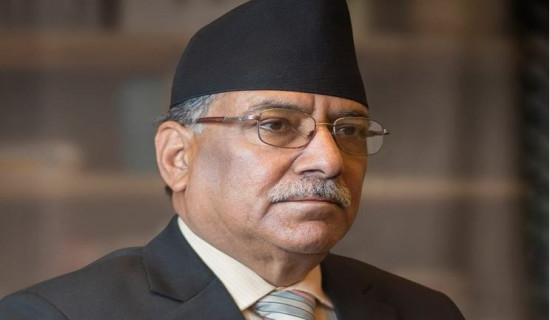- Saturday, 26 April 2025
A Symbolic Expression Of Freedom
Gandhi Raj Kafle
Being involved in epic writing passionately until its completion for publication is an arduous literary journey for a poet. However, we have an epic t having a grand theme.The writer ( poet) of this under-review epic book is Dr Dubasu Chhetri and the title of his epic is “Awatar Bighatit Hanuman”.
The preface authors in the book Dr Basudev Tripathi and Dr Laxman Prasad Gautam have talked in detail about the merits of epic writing, particularly in the context of the poetic skills of Dubasu. What values make an epic? In the words of Dr Tripathi, it is the sweetness of rhythmic sentiment. Both preface authors have written critical appreciations of this metre for the epic author.
Dubasu's preference to choose symbolism for writing a poem is a known literary fact. There are quite a good number of anthologies of Nepali poetry like “Aswomedha Yagnaka Ghodaharu” (horses of Aswomedha Yagna), “Manabhitra Pani Aakash Huncha" (There is Heart inside the Heart) and "Kolaj Mana" (Collage Heart) and others already to his credit, which are evidence of his preference to symbolism.
So, the epic “Awatar Bighatit Hanuman”, as the title's meaning clarifies,- is metaphorically decorative to relate myths with the reality of our times. Dubasu has plenty of subjects of our times, which beautifully figure in this epic.
But, why did the poet choose the deity Hanuman for it? There is a reason for him. The poet spreads his eyes here and far and wide and finds voices of people everywhere are new and their cause and demands are powerful and irrepressible. No rulers in this world and time can take the importance of being Hanuman for granted. However, this reality is the symbolism of Hanuman, which has been applied to deliver a new message by poetically imagining the deity's new incarnation.
Dubasu in his poetic content in this epic has brought many kinds of people and created verse of the epic in favour of them. This class includes refugees, marginalised communities, docile workers, poor farmers, mercenary soldiers and other common people who are obedient just because they love the virtues of obedience and faithfulness. Symbol Hanuman has come to give voice, identity and freedom to this large chunk of people, who in a way are members of a global society.
The poet has imagined little small Hanuman in this new incarnation. The original Hanuman's personality, as described in many ancient stories, is multi-dimensional. He is humble to Lord Ram and uses all of his wisdom to accomplish Ram’s divine works just because he has purposively come to do it. Otherwise, Hanuman is super in every sense – the instance he swallowed even the God Sun once – is an example worthy to remember here.
But, to readers of this epic, there is a powerful agreeable point with the poet also from around the personality of Hanuman. This is the metaphor ‘Hanuman’ which denotes ‘too much loyalty’ and ‘humbleness’. The meaning of ‘too much’ here is like ‘slave’ as perceived in interpretations of social problems. Things go right and works are performed because of loyalty like Hanuman in society. But history builds up in favour of affluent classes or rulers. However, the class, denoted by the metaphor "Bighatit Hanuman" in this Epic, does not figure in the state.
Poet Dubasu has not only imagined "Bighatit Hanuman", but he has also symbolically interpreted the social change in the new incarnation of Hanuman. The poet warns that this is not a one-sided change. It has begun to shake the whole structure – from the peak to the roots. According to the metaphors of this epic, the change has not left even thoughts of the symbolic 'Ram’ untouched.
To talk about the themes of the epic further, freedom is the soul fabric. Dubasu emphasises a new life for all ‘Bighatit Hanuman’ imagining free life for them. It is symbolically relevant to the context of the original Ramayan, too, because the passing away of Ram, in the end, happened to be quick and unpredictable, which means control of Ram fell all of a sudden and a new scenario emerged there. The poet has highlighted the fact that Hanuman during the physical presence of Ayodhyaya King Ram and Hanuman after the passing away of Ram is a quite different phenomena.
In conclusion, the poet has sung a new song of freedom, he has raised his voice in favour of the working class in the form of migrant labourers, he is talking in an existential spirit to provide recognition to everyone and he has also praised Nepal’s march towards republican form of governance in his verses through this epic. Yet, the metaphors, which poet Dubasu has used here, are related to the divine Ram, one of the great incarnations of Lord Bishnu, and Hanuman, who also is believed to be endowed with divine power. But, the context the poet has talked about here is completely new; which means the subjects of this epic have to be seen symbolically from the perspective of modern peoples' desire for equality.







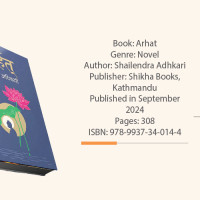
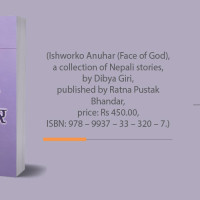
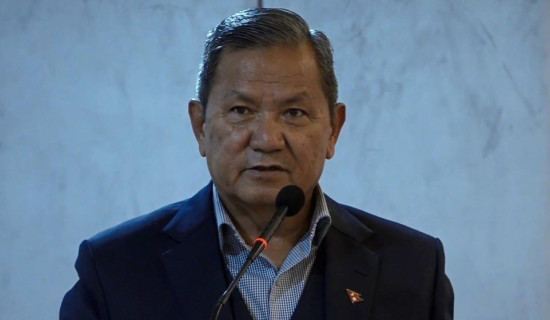



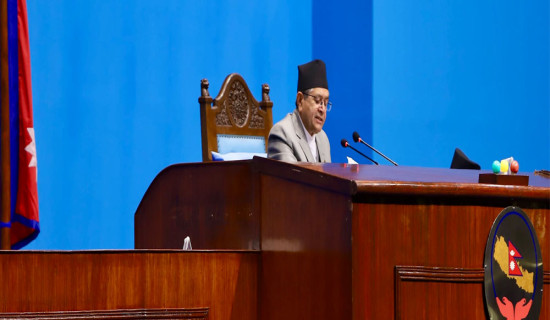
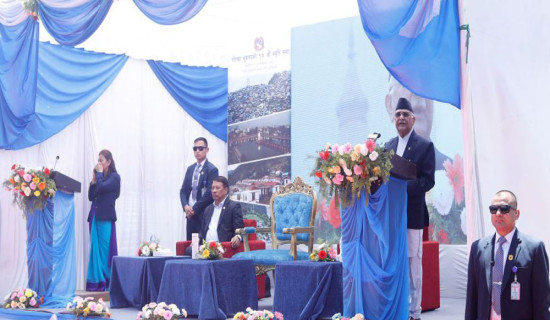
copy-original-thumb.jpg)
